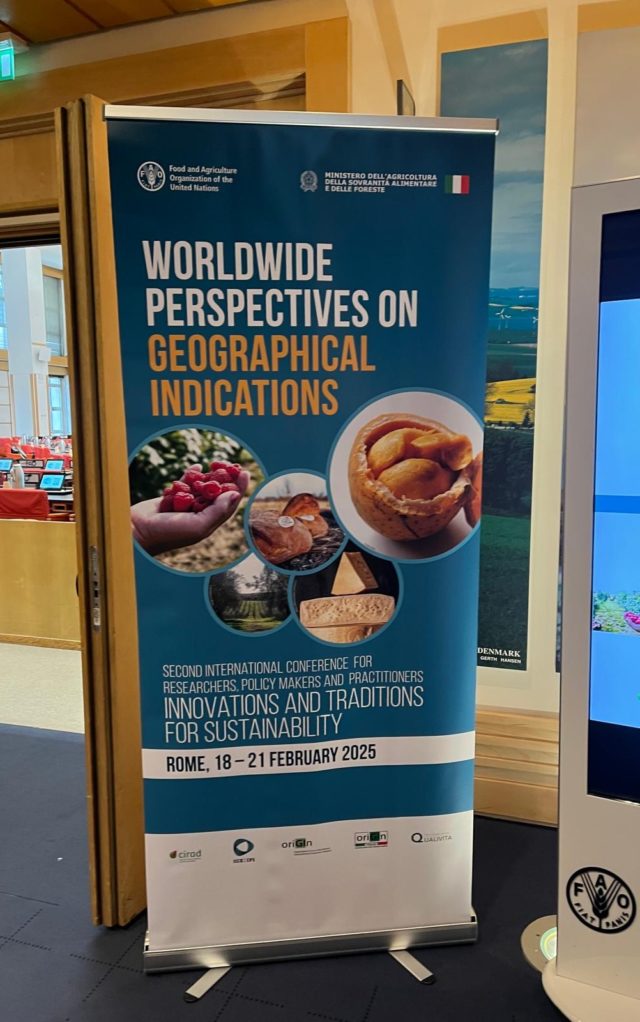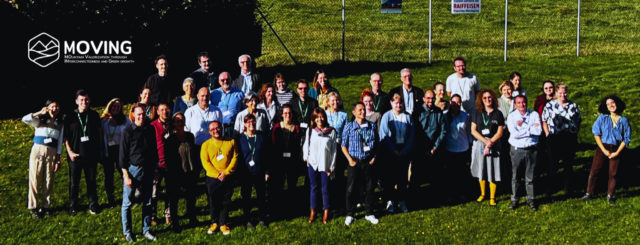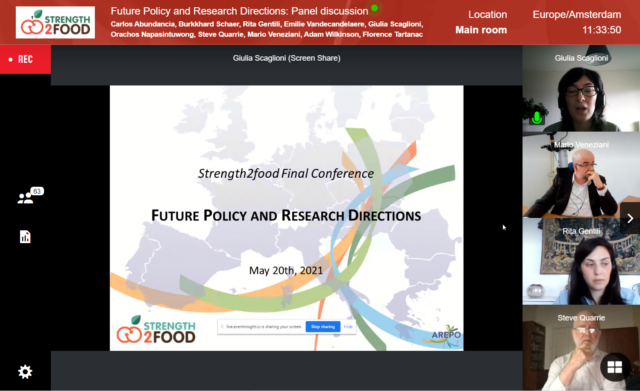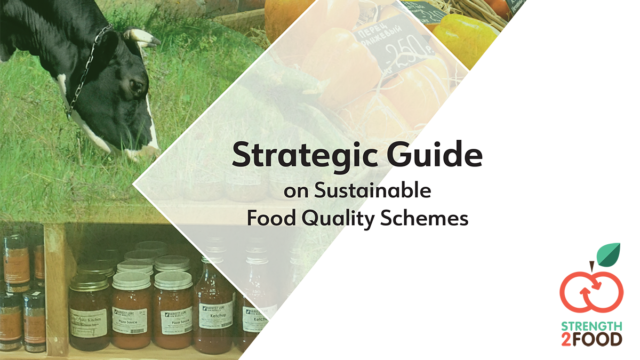On January 16th 2020, AREPO and the coordinators of the H2020 Strength2Food project organized an engagement event with the DG Agriculture and Rural Development of the European Commission (EC), with experts from the Geographical Indications Unit, and respective Deputy Head Ms Branka Tome, as well as Research and Innovation representatives both from DG Agri and the Research Executive Agency (REA).
Considering the ongoing EC evaluation of the EU Food Quality Schemes (FQS), as well as the new EC priority on strengthening Geographical Indications (GIs), the aim of the meeting was to share Strength2food’s key findings regarding the effectiveness, efficiency, relevance and consistency of Quality Schemes for food and agricultural products, and discuss related policy recommendations.
After a general overview of the project and its thematic areas, the project Coordinator Professor Matthew Gorton (Newcastle University, UK) presented some of the key research messages. Most importantly, he emphasised the potential of GIs in delivering substantial socio-economic and environmental benefits to related food chains and territories. The benefits of GIs are particularly significant from an international trade perspective, since they can provide an export-promotion mechanism through which the EU can compete on quality rather than price.
Project Manager Dr Barbara Tocco (Newcastle University, UK), summarised some of the producers’ benefits that result from engaging with GIs, and different capacities of consortia to realise such benefits, according to the level of establishment, reputation and consumer recognition, of specific products, quality label and territory of origin. Special emphasis, however, needs to be placed on the consumer side, and strategies to improve consumer awareness and valuation of FQS. As suggested by the project results, there appears to be limited understanding and recognition of EU FQS, particularly as concerns the TSG certification, with general confusion regarding labelling certifications and related logo designs. Results vary across Member States with, overall, higher levels of knowledge and confidence in countries like France and Italy, where GIs are more embedded in the food culture and culinary heritage, with strong linkages to the territory of origin, but also reflecting the highest concentration of registered trademarks in the respective countries.
Professor Filippo Arfini (University of Parma, IT), presented the main findings regarding the performance, governance and sustainability of FQS, with a particular focus on the conceptual framework and holistic methodological approach used to assess the socio-economic-environmental impacts of FQS on sustainability, and related territories, and contribution in creating public value.
The results collected thus far from Strength2Food have been pivotal in the work AREPO has been doing on European Quality Schemes, serving as evidence base for some policy recommendations on strengthening of GIs, indicated as one of the missions of the new Commissioner for Agriculture and Rural Development, Janusz Wojciechowski, by President von der Leyen.
Strength2Food is a 5-year EU-funded project that started in March 2016. Its 30-partner consortium, representing 11 EU and 4 non-EU countries, combines leading academic, communication, SME and stakeholder organisations. This multi-actor project aims at ‘Strengthening European Food Chain Sustainability by Quality and Procurement Policy’ through research, innovation and demonstration activities and it seeks to provide the EU and its Member States with evidence-based recommendations on the implementation of Food Quality Schemes (FQS), Public Sector Food Procurement (PSFP) and Short Food Supply Chains (SFSC).







